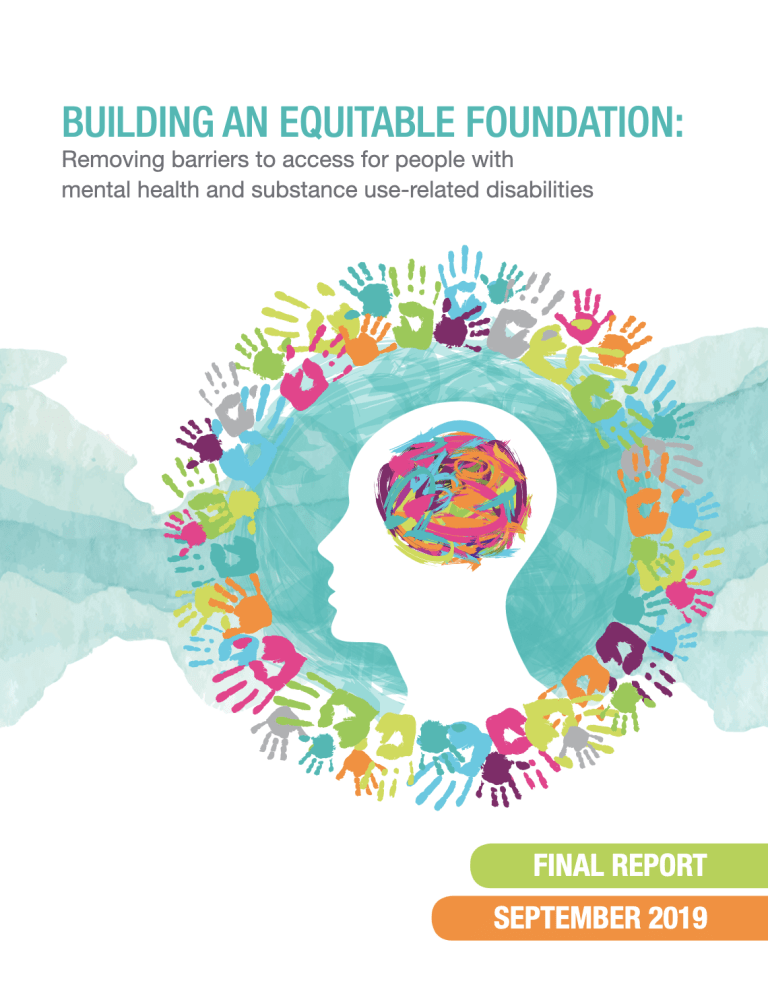12 search results
Human rights
Recommendation 1: The BC Human Rights Commission should audit the laws and policies governing the provision of social services to identify and eliminate accessibility barriers that prevent or dissuade people with mental health and substance use-related disabilities from obtaining the supports and services they are eligible for.-
Category and theme:
Human rights
Recommendation 2: Alternatively, the Ministry of Mental Health and Addictions should establish an independent Mental Health Advocate to monitor the performance of public services that impact people with mental health and substance use-related health issues, receive and act on systemic disability related complaints and protect the human rights of people living with illness who access services.-
Category and theme:
Audience:
Human rights
Recommendation 3: The Ministry of Social Development and Poverty Reduction should ensure that its commitment to develop and pass comprehensive accessibility legislation will go beyond physical notions of accessibility and ensure that people with invisible disabilities, in particular people with mental health or substance use-related disabilities, can fully participate in their communities.-
Category and theme:
Audience:
Housing
Recommendation 4: Relevant public bodies should continue to build additional affordable housing that offers a flexible and progressive range of supports, specifically designed for people with mental health or substance userelated disabilities. For example, a person should have the option to move from a group home with onsite staff to an apartment managed by a local mental health non-profit as their health and if they chose to do so.-
Category and theme:
Housing
Recommendation 5: The Ministry of Municipal Affairs and Housing should develop a neutral, easy-to-use process for tenants to identify and voice their tenancy and assistance needs, with a focus on clients that might experience disability-related barriers doing so on their own (for example, clients in supportive housing arrangements). The service should be contracted out to be delivered by a low-barrier community-based organization where people with disabilities already access services-
Category and theme:
Audience:
Housing
Recommendation 6: The Attorney General should create a legal means to consider tenancy and anti-discrimination rights under the BC Human Rights Code when they are raised before the Residential Tenancy Branch. This could include a process for the BC Human Rights Tribunal to issue interim orders once a human rights complaint has been filed and amendments to the Residential Tenancy Act that allow for an interim delay in a residential tenancy dispute when such an interim order has been issued.-
Category and theme:
Groups affected:
Disability assistance
Recommendation 7: Continue steps to simplify and improve the income and disability application processes with the Ministry’s own disability-related “daily living activities” (e.g., decision-making or communicating effectively with others, etc.) in mind. In particular, the application should only collect information that is necessary and relevant; avoid asking for the same information twice; and not focus solely on deficits, but allow applicants to identify positive qualities, abilities or activities such as volunteering without impacting eligibility.-
Category and theme:
Groups affected:
Disability assistance
Recommendation 8: Train frontline Ministry workers in trauma informed service provision to ensure people who access services are treated with compassion, patience and understanding. The training may include education on mental health related barriers and stigma reduction provided by people with lived or living experience of illness and of accessing assistance.-
Category and theme:
Audience:
Disability assistance
Recommendation 9: Provide funding for case managers and peer navigation staff in community organizations that serve people with mental health and substance use-related disabilities and complex issues such as homelessness to help them gain access to the system. Trained people with lived or living experience should fill these roles wherever possible to ensure low barrier, empathetic and responsive services.-
Category and theme:
WorkBC employment services
Recommendation 10: The Ministry of Social Development and Poverty Reduction should align the provision of WorkBC’s customized employment (CE) program with the Individual Placement and Support (IPS) model that prioritizes strengths-based, rapid job search and placement, and reduce barriers to entering the program for people living with mental health or substance userelated disabilities, such as repeat information gathering and skills assessments.-
Category and theme:
Audience:
